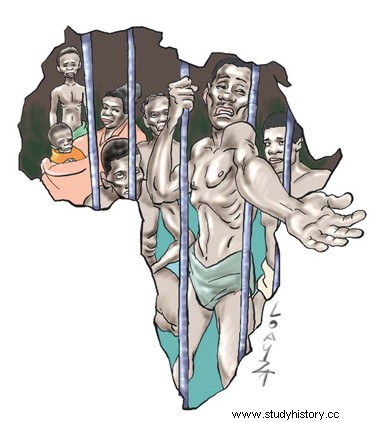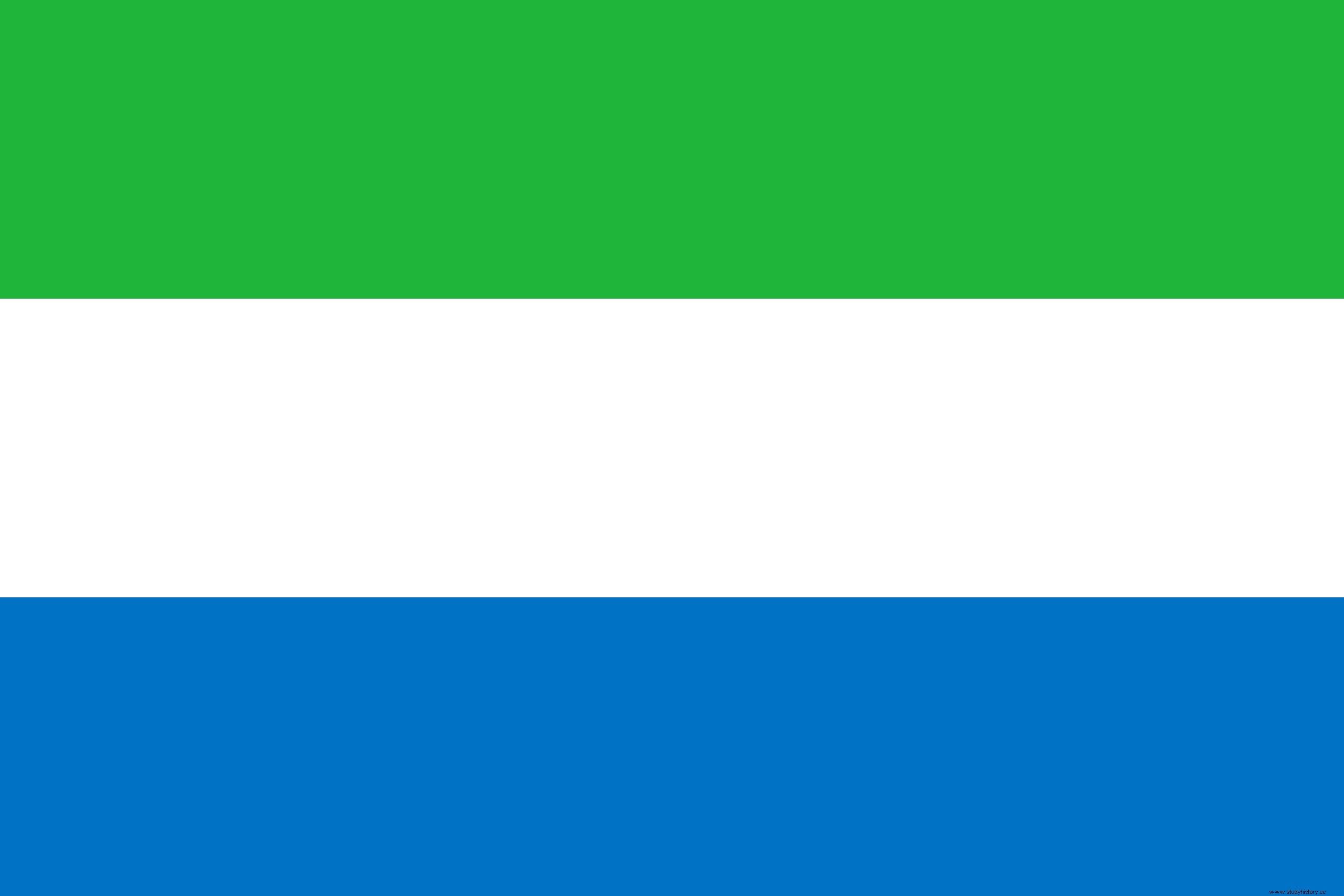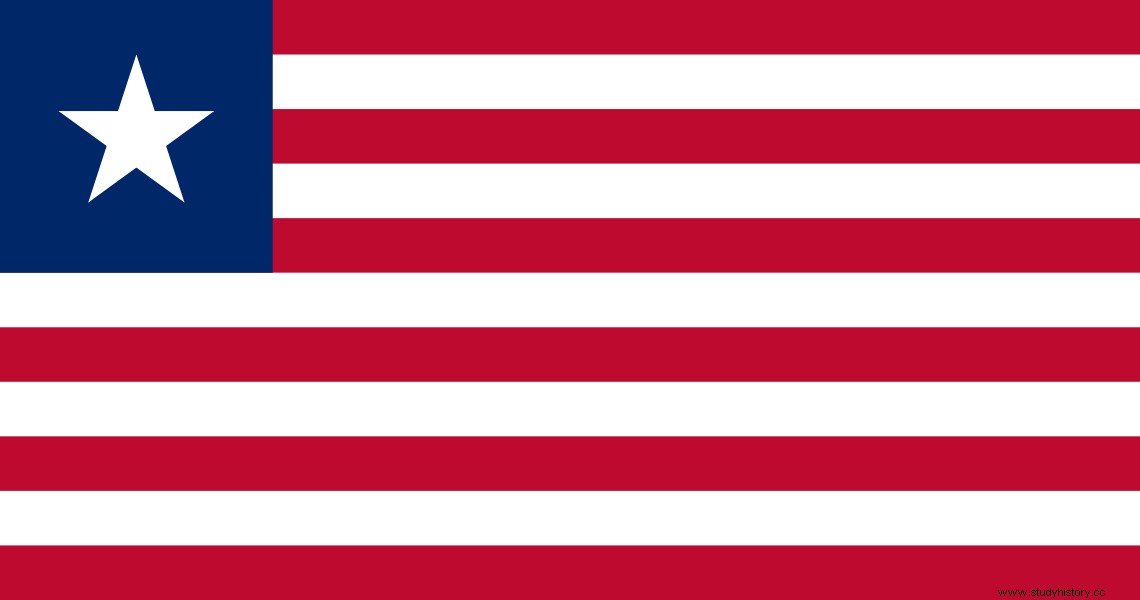The French philosopher Michel de Montaigne said that «conscience makes us discover ourselves, that we denounce or accuse ourselves, and in the absence of witnesses declares against us «, and I would add that it is usually responsible for the fact that at night we cannot rest in peace. Logically, if our conscience is not clear, it is because we have directly caused some damage to third parties or we have been, with our actions or our decisions, responsible for some injustice. Although there is irreparable damage or loss that is impossible to replace or replace, it seems logical to think that if we repent and manage to repair the damage caused or minimize the losses suffered, we will clear our conscience as much as possible and we will be able to continue with our lives. Well, Britain and the US must have thought something like that with slavery, and decided to clear their conscience… but without counting the victims.

In the last third of the 18th century, British abolitionists, led by Granville Sharp , they begin to stir consciences and the first cases of slaves freed after judicial processes related to "property" take place. It would be the beginning of a process that, after the approval in 1807 of the Slave Trade Act which prohibited the slave trade on British ships, would culminate in the Slavery Abolition Act in 1833. As a result of this process, the number of freed slaves in London was growing and Granville Sharp thought it would be a good idea to return them to the continent from which they were taken (at least to their ancestors because many had been born into captivity and had never been to the continent). in Africa). It would be petty to question the intention of Sharp, a man who devoted his life to the fight to eradicate slavery, but the reality is that the final result was far from what he thought.
An agreement was signed with the chief of the temne tribe , King Tom for British friends, to give them a strip of land at the mouth of the Sierra Leone River. In 1787, a warship departed from England with 331 freed slaves, 41 of them women, and 60 prostitutes (so they took advantage of the trip and cleaned the streets of London)... the same as if they had left any of us there (with or without prostitutes). The first year, half of the new settlers had died from diseases or "accidents" typical of the place (snake, lion, clashes with the natives of the place...); others made a living by joining the slave traders operating in the area, and what little remained of the settlement was razed to the ground by King Jemmy, Tom's successor. But the British had come to stay… or to park freed slaves there. New remittances of settlers were arriving from England, Nova Scotia (Canada) or Jamaica and over time, and many deaths later, they managed to establish a settlement that they called Freetown (Free City , very significant name). In 1807, with the approval of the Slave Trade Act , the British establish a military base in Freetown to control the slave ships that "fished" on the west coast of Africa. In addition, all the slaves rescued from slave ships, regardless of their origin, went directly to Freetown, so that place became a hodgepodge of languages, ethnic groups and customs that the British tried to fit with a bible in hand, a stick in the other and perfect English from Great Britain. And they even tried to take the word of God deep into the jungle among the native tribes.
At the end of the 19th century, when the European powers began to divide up the African cake, the British decided to turn that settlement that served to wash their consciences into a protectorate to create a zone of influence in the region and stop the push of the French. If that decision did not sit well with the chiefs of the native tribes, they liked it even less that in the local Council that administered the territory the descendants of the settlers were in the majority (these considered themselves less black and more European than the Africans). Everything was arranged by giving the tribal chiefs a certain degree of autonomy and authority in exchange for the exploitation of the vast natural resources. In 1961, Sierra Leone -capital Freetown – got its independence and, from that moment, that artificial state, created to cleanse the conscience of the British, became a hornet's nest of corruption, coups and massacres, among the mende , the temne and the settlers. As Gary Brecher says in his book «Exploits and fudges of war «In Africa, what scares the most are the self-proclaimed groups with acronyms of the style FLN (National Liberation Front) or FRU (Revolutionary United Front). Their way of acting is as follows:they assault power and kill the entire government and its followers; they call "democratic" elections in which they win by an absolute majority; they create a secret police to control/eliminate opponents during their government... and other "acronyms" always appear that will make the previous ones good.

Liberia was the "laundry of conscience" of the US... but more hypocritical.
Similar to what the British did in Sierra Leone, the US also had the idea of resettling its freed slaves on the west coast of Africa, just south of Sierra Leone. In this case it was the American Colonization Society the one in charge of washing the American conscience… and removing the “problem” of the growing number of free blacks. This private company, founded in 1816, was formed and financed by respectable abolitionist members of American society and, also, by slave owners… who could not bear to see free blacks on the street. After receiving the approval of the US president and even funding, in 1820 the first ship departed with 88 free slaves (blacks and mulattoes) and 3 members of the Society to Africa (that land that many were familiar with because of the stories they were told their ancestors). As the Americans are very legalistic, when they want, they even brought their own Constitution. As happened with the slaves who arrived in Sierra Leone, many of them died of malaria and, in addition, the members of the Society were unable to sign any sale agreement where to place the settlers. So, they had no choice but to take refuge in Freetown . The following year they returned to the fray, but this time they came with more arguments to convince the natives… a warship. Faced with such arguments, the commanding officer, Lieutenant Robert Stockton , he had no problem reaching an agreement to get a strip of land in southern Sierra Leone where he could establish the "garden of Eden". Despite the continuous clashes with the indigenous tribes, new settlers continued to arrive, all directly from the US, and in 1824, in honor of President James Monroe for his unconditional support of the cause, Monrovia was founded , the capital of the Land of the Free (Liberia )
During the next two decades, the population of settlers arriving in Liberia grew steadily thanks to the continuous migration of free slaves (black and mulatto) who arrived from the United States. As their population increased, and still being a minority, the Americo-Liberians , who called themselves that, began to manage the administration of the territory, becoming, on many occasions, the oppressors of the native Africans -like those who arrived in Sierra Leone, they considered themselves less black than those from there-. These Americo-Liberians They must not have had a good memory because, sooner rather than later, they took a liking to governing a territory and having others "blacker" at their feet and asked the American Colonization Society for more autonomy. . Border pressure from the French and British, in addition to the lack of help provided by the US to defend their territory, led the colonists to proclaim their independence from the American Colonization Society , not from the USA, on July 26, 1847 with a Constitution and a flag based on those of the USA.

The British, always on the lookout for a cut, recognized the new country and signed a treaty of commerce and friendship with Monrovia in 1848. And the US once again demonstrated that hypocrisy wears stars and stripes:even though it was an American initiative and having received the support of US presidents, they did not recognize the new state until 1862, already in the middle of the Civil War. From its independence until 1980, Liberia was controlled by the community of Americo-Liberians which was very small compared to the indigenous population. In reality, the different indigenous groups had limited political and economic rights and opportunities. On April 12, 1980, tired of enduring that situation, Samuel Doe , of the krahn ethnic group , seized power with a coup, killed President William R. Tolbert and many other Liberians of Americo-Liberian descent, and the rest… the part of the acronyms described in Sierra Leone could be added without fear of being wrong.
This is what washing your conscience has to do without counting on your victims.
